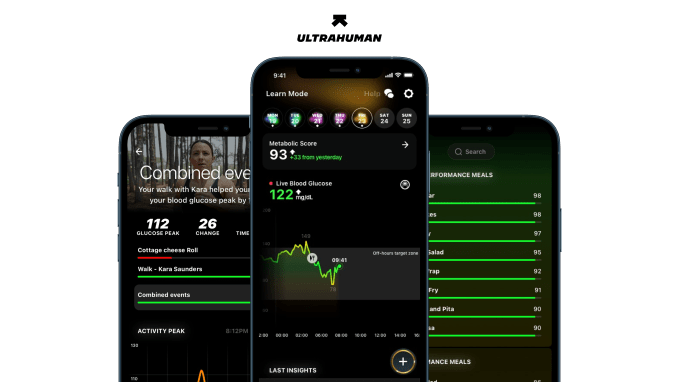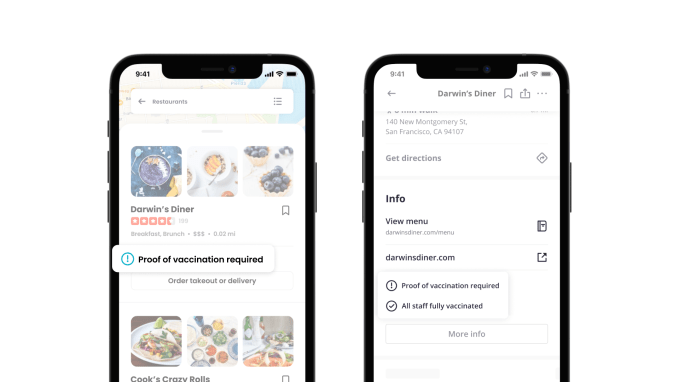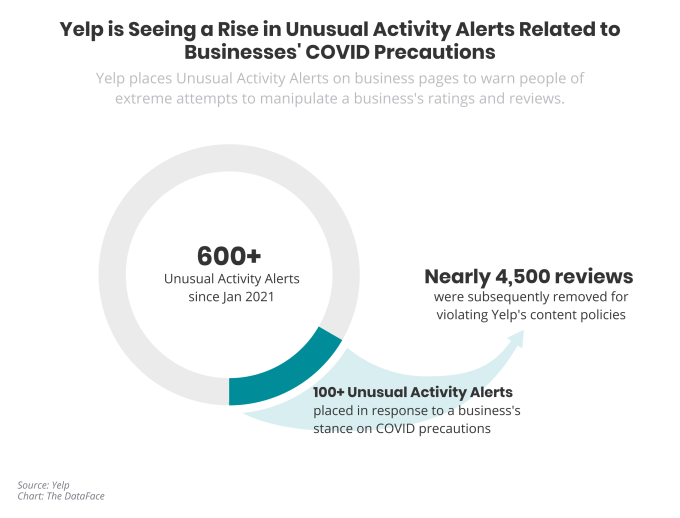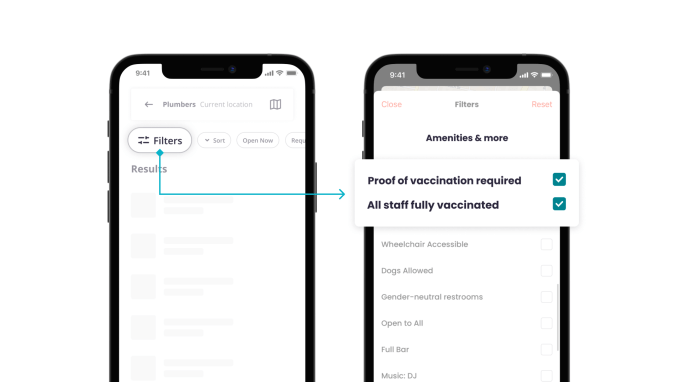Google is infamous for spinning up products and killing them off, often in very short order. It’s an annoying enough habit when it’s stuff like messaging apps and games. But the tech giant’s ambitions stretch into many domains that touch human lives these days. Including, most directly, healthcare. And — it turns out — so does Google’s tendency to kill off products that its PR has previously touted as ‘life saving’.
To wit: Following a recent reconfiguration of Google’s health efforts — reported earlier by Business Insider — the tech giant confirmed to TechCrunch that it is decommissioning its clinician support app, Streams.
The app, which Google Health PR bills as a “mobile medical device”, was developed back in 2015 by DeepMind, an AI division of Google — and has been used by the UK’s National Health Service in the years since, with a number of NHS Trusts inking deals with DeepMind Health to roll out Streams to their clinicians.
At the time of writing, one NHS Trust — London’s Royal Free — is still using the app in its hospitals.
But, presumably, not for too much longer since Google is in the process of taking Streams out back to be shot and tossed into its deadpool — alongside the likes of its ill-fated social network, Google+, and Internet ballon company Loon, to name just two of a frankly endless list of now defunct Alphabet/Google products.
Other NHS Trusts we contacted which had previously rolled out Streams told us they have already stopped using the app.
University College London NHS Trust confirmed to TechCrunch that it severed ties with Google Health earlier this year.
“Our agreement with Google Health (initially DeepMind) came to an end in March 2021 as originally planned. Google Health deleted all the data it held at the end of the [Streams] project,” a UCL NHS Trust spokesperson told TechCrunch.
Imperial College Healthcare NHS Trust also told us it stopped using Streams this summer (in July) — and said patient data is in the process of being deleted.
“Following the decommissioning of Streams at the Trust earlier this summer, data that has been processed by Google Health to provide the service to the Trust will be deleted and the agreement has been terminated,” a spokesperson said.
“As per the data sharing agreement, any patient data that has been processed by Google Health to provide the service will be deleted. The deletion process is started once the agreement has been terminated,” they added, saying the contractual timeframe for Google deleting patient data is six months.
Another Trust, Taunton & Somerset, also confirmed its involvement with Streams had already ended.
The Streams contracts DeepMind inked with the NHS Trusts were for five years — so these contracts were likely approaching the end of their terms, anyway.
Contract extensions would have had to be agreed by both parties. And Google’s decision to decommission Streams may be factoring in a lack of enthusiasm from involved Trusts to continue using the software — although if that’s the case it may, in turn, be a reflection of Trusts’ perceptions of Google’s weak commitment to the project.
Neither side is saying much publicly.
But as far as we’re aware the Royal Free is the only NHS Trust still using the clinician support app as Google prepares to cut off Stream’s life support.
No more Streams?
The Streams story has plenty of wrinkles, to put it politely.
For one thing, despite being developed by Google’s AI division — and despite DeepMind founder Mustafa Suleyman saying the goal for the project was to find ways to integrate AI into Streams so the app could generate predictive healthcare alerts — the Streams app doesn’t involve any artificial intelligence.
An algorithm in Streams alerts doctors to the risk of a patient developing acute kidney injury but relies on an existing AKI (acute kidney injury) algorithm developed by the NHS. So Streams essentially digitized and mobilized existing practice.
As a result, it always looked odd that an AI division of an adtech giant would be so interested in building, provisioning and supporting clinician support software over the long term. But then — as it panned out — neither DeepMind nor Google were in it for the long haul at the patient’s bedside.
DeepMind and the NHS Trust it worked with to develop Streams (the aforementioned Royal Free) started out with wider ambitions for their partnership — as detailed in an early 2016 memo we reported on, which set out a five year plan to bring AI to healthcare. Plus, as we noted above, Suleyman keep up the push for years — writing later in 2019 that: “Streams doesn’t use artificial intelligence at the moment, but the team now intends to find ways to safely integrate predictive AI models into Streams in order to provide clinicians with intelligent insights into patient deterioration.”
A key misstep for the project emerged in 2017 — through press reporting of a data scandal, as details of the full scope of the Royal Free-DeepMind data-sharing partnership were published by New Scientist (which used a freedom of information request to obtain contracts the pair had not made public).
The UK’s data protection watchdog went on to find that the Royal Free had not had a valid legal basis when it passed information on millions of patients’ to DeepMind during the development phase of Streams.
Which perhaps explains DeepMind’s eventually cooling ardour for a project it had initially thought — with the help of a willing NHS partner — would provide it with free and easy access to a rich supply of patient data for it to train up healthcare AIs which it would then be, seemingly, perfectly positioned to sell back into the self same service in future years. Price tbc.
No one involved in that thought had properly studied the detail of UK healthcare data regulation, clearly.
Or — most importantly — bothered to considered fundamental patient expectations about their private information.
So it was not actually surprising when, in 2018, DeepMind announced that it was stepping away from Streams — handing the app (and all its data) to Google Health — Google’s internal health-focused division — which went on to complete its takeover of DeepMind Health in 2019. (Although it was still shocking, as we opined at the time.)
It was Google Health that Suleyman suggested would be carrying forward the work to bake AI into Streams, writing at the time of the takeover that: “The combined experience, infrastructure and expertise of DeepMind Health teams alongside Google’s will help us continue to develop mobile tools that can support more clinicians, address critical patient safety issues and could, we hope, save thousands of lives globally.”
A particular irony attached to the Google Health takeover bit of the Streams saga is the fact that DeepMind had, when under fire over its intentions toward patient data, claimed people’s medical information would never be touched by its adtech parent.
Until of course it went on it hand the whole project off to Google — and then lauded the transfer as great news for clinicians and patients!
Google’s takeover of Streams meant NHS Trusts that wanted to continue using the app had to ink new contracts directly with Google Health. And all those who had rolled out the app did so. It’s not like they had much choice if they did want to continue.
Again, jump forward a couple of years and it’s Google Health now suddenly facing a major reorg — with Streams in the frame for the chop as part of Google’s perpetually reconfiguring project priorities.
It is quite the ignominious ending to an already infamous project.
DeepMind’s involvement with the NHS had previously been seized upon by the UK government — with former health secretary, Matt Hancock, trumpeting an AI research partnership between the company and Moorfield’s Eye Hospital as an exemplar of the kind of data-driven innovation he suggested would transform healthcare service provision in the UK.
Luckily for Hancock he didn’t pick Streams as his example of great “healthtech” innovation. (Moorfields confirmed to us that its research-focused partnership with Google Health is continuing.)
The hard lesson here appears to be don’t bet the nation’s health on an adtech giant that plays fast and loose with people’s data and doesn’t think twice about pulling the plug on digital medical devices as internal politics dictate another chair-shuffling reorg.
Patient data privacy advocacy group, MedConfidential — a key force in warning over the scope of the Royal Free’s DeepMind data-sharing deal — urged Google to ditch the spin and come clean about the Streams cock-up, once and for all.
“Streams is the Windows Vista of Google — a legacy it hopes to forget,” MedConfidential’s Sam Smith told us. “The NHS relies on trustworthy suppliers, but companies that move on after breaking things create legacy problems for the NHS, as we saw with wannacry. Google should admit the decision, delete the data, and learn that experimenting on patients is regulated for a reason.”
Questions over Royal Free’s ongoing app use
Despite the Information Commissioner’s Office’s 2017 finding that the Royal Free’s original data-sharing deal with DeepMind was improper, it’s notable that the London Trust stuck with Streams — continuing to pass data to DeepMind.
The original patient data-set that was shared with DeepMind without a valid legal basis was never ordered to be deleted. Nor — presumably has it since been deleted. Hence the call for Google to delete the data now.
Ironically the improperly acquired data should (in theory) finally get deleted — once contractual timeframes for any final back-up purges elapse — but only because it’s Google itself planning to switch off Streams.
The Royal Free confirmed to us that it is still using Streams, even as Google spins the dial on its commercial priorities for the umpteenth time and decides it’s not interested in this particular bit of clinician support, after all.
We put a number of questions to the Trust — including about the deletion of patient data — none of which it responded to.
Instead, two days later, it sent us this one-line statement which raises plenty more questions — saying only that: “The Streams app has not been decommissioned for the Royal Free London and our clinicians continue to use it for the benefit of patients in our hospitals.”
It is not clear how long the Trust will be able to use an app Google is decommissioning. Nor how wise that might be for patient safety — such as if the app won’t get necessary security updates, for example.
We’ve also asked Google how long it will continue to support the Royal Free’s usage — and when it plans to finally switch off the service. As well as which internal group will be responsible for any SLA requests coming from the Royal Free as the Trust continues to use software Google Health is decommissioning — and will update this report with any response. (Earlier a Google spokeswoman told us the Royal Free would continue to use Streams for the ‘near future’ — but she did not offer a specific end date.)
In press reports this month on the Google Health reorg — covering an internal memo first obtained by Business Insider — teams working on various Google health projects were reported to be being split up to other areas, including some set to report into Google’s search and AI teams.
So which Google group will take over responsibility for the handling of the SLA with the Royal Free, as a result of the Google Health reshuffle, is an interesting question.
In earlier comments, Google’s spokeswoman told us the new structure for its reconfigured health efforts — which are still being badged ‘Google Health’ — will encompass all its work in health and wellness, including Fitbit, as well as AI health research, Google Cloud and more.
On Streams specifically, she said the app hasn’t made the cut because when Google assimilated DeepMind Health it decided to focus its efforts on another digital offering for clinicians — called Care Studio — which it’s currently piloting with two US health systems (namely: Ascension & Beth Israel Deaconess Medical Center).
And anyone who’s ever tried to use a Google messaging app will surely have strong feelings of déjà vu on reading that…
DeepMind’s co-founder, meanwhile, appears to have remained blissfully ignorant of Google’s intentions to ditch Streams in favor of Care Studio — tweeting back in 2019 as Google completed the takeover of DeepMind Health that he had been “proud to be part of this journey”, and also touting “huge progress delivered already, and so much more to come for this incredible team”.
In the end, Streams isn’t being ‘supercharged’ (or levelled up to use current faddish political parlance) with AI — as his 2019 blog post had envisaged — Google is simply taking it out of service. Like it did with Reader or Allo or Tango or Google Play Music, or…. well, the list goes on.
Suleyman’s own story contains some wrinkles, too.
He is no longer at DeepMind but has himself been ‘folded into’ Google — joining as a VP of artificial intelligence policy, after initially being placed on an extended leave of absence from DeepMind.
In January, allegations that he had bullied staff were reported by the WSJ. And then, earlier this month, Business Insider expanded on that — reporting follow up allegations that there had been confidential settlements between DeepMind and former employees who had worked under Suleyman and complained about his conduct (although DeepMind denied any knowledge of such settlements).
In a statement to Business Insider, Suleyman apologized for his past behavior — and said that in 2019 he had “accepted feedback that, as a co-founder at DeepMind, I drove people too hard and at times my management style was not constructive”, adding that he had taken time out to start working with a coach and that that process had helped him “reflect, grow and learn personally and professionally”.
We asked Google if Suleyman would like to comment on the demise of Streams — and on his employer’s decision to kill the project — given his high hopes for the project and all the years of work he put into the health push. But the company did not engage with that request.
We also offered Suleyman the chance to comment directly. We’ll update this story if he responds.





